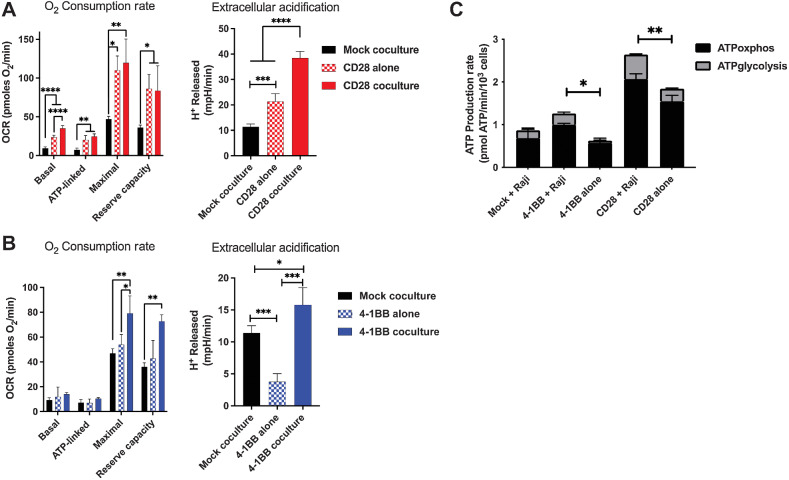Figure 2.
Target antigen stimulation of CD19-targeted CAR T cells increases phosphorus-driven cellular metabolic demand. Basal, ATP-linked, maximal, and reserve OCR and basal extracellular acidification were measured under basal metabolic conditions and in response to mitochondrial inhibitors, as specified in the methods after 24 hours of coculture of (A) CD28 or (B) 4–1BB CAR T cells with CD19+ Raji target cells. C, ATP production rate from oxidative phosphorylation and glycolysis normalized to cell density. Results are demonstrative of quintuplicate wells during independent experiment. *, P < 0.05; **, P < 0.01; ***, P < 0.001; ****, P < 0.0001; unpaired t test.

